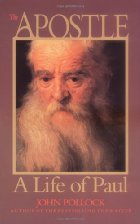As the world, or perhaps more precisely western culture, celebrates Halloween today, there is perhaps a more important anniversary celebrated every October 31st. But it is one little known apart from academic and theological circles, in spite of the fact that today marks the 493rd anniversary of this particular event. Today is Reformation Day. On October 31, 1517, a German Catholic monk named Martin Luther nailed (literally) the so-called 95 Theses on the door of the church in Wittenberg, Germany. Luther, himself a Catholic theologian, prepared the 95 Theses as his objections to what he perceived as numerous unscriptural practices in the Catholic church of the 16th century, not the least of which was the selling of indulgences or forgiveness of sins. In preparing his objections, Martin Luther had no intention of leaving the Catholic Church. His motive was not to raise a stink and threaten to leave and become a Presbyterian or Baptist or Methodist or Nazarene…those churches did not exist. Rather, he intended his 95 objections to be the source of reform from within the Church through protesting its practices. The term “protestant reformation” was a title given to what ultimately happened years later in church history, in fact after Luther’s death. But it was in literal fact, the essence of Luther’s strategy…to bring about reform through protest. Ultimately some of the reforms he sought, did come about and the Catholic Church of today is not what it was in the early 1500’s. Millions of Roman Catholics around the world should be grateful for that.
Reform of religious practice has been present throughout history and not limited to Martin Luther’s. In the Old Testament, there are examples of the Kings of Israel who brought about reform in the then current practice of the worship of the One True God. Hezekiah (II Kings 18: 1-8) and Josiah (II Kings 23: 1-20) are two examples and God blessed their reigns as kings because of the reform they brought about.
While reformation has been a pattern in church history, let me invite you to consider that reformation is something that should be present in our LIVES, not just today, on Reformation Day, but everyday. We are all works in process. The “churchy” word is sanctification. God, through the Holy Spirit, is working on us, improving us and making us more Christ-like. Are we cooperating with Him? We need to surrender to the sanctifying work of the Holy Spirit and be reformed every day. With the constant bombardment of the world and its lusts and oh by the way, our sin nature, it is so easy for us to revert to the easy way of not following the Spirit. Blogger Dave Bish from the United Kingdom says it beautifully:
“What I need is men and women who will rub the grace of God in the gospel into my heart. Not just once a year, but daily. Not because I don’t know it, but because I do. I need to be suspicious of myself – the word of God functions to correct and encourage, to rebuke and instruct. Through His word God demands change of me in areas that I’ve never considered. Not because it was never making those demands, but because God is working to change me from one degree of glory to another.”
May it be our prayer and our purpose to allow God to reform us from one degree of glory to another! He wants to do it. Are we willing to receive it?
Happy Reformation Day
See another article I wrote on Reformation day a few years agoby clicking HERE.



 Posted by Chuck
Posted by Chuck 
You must be logged in to post a comment.